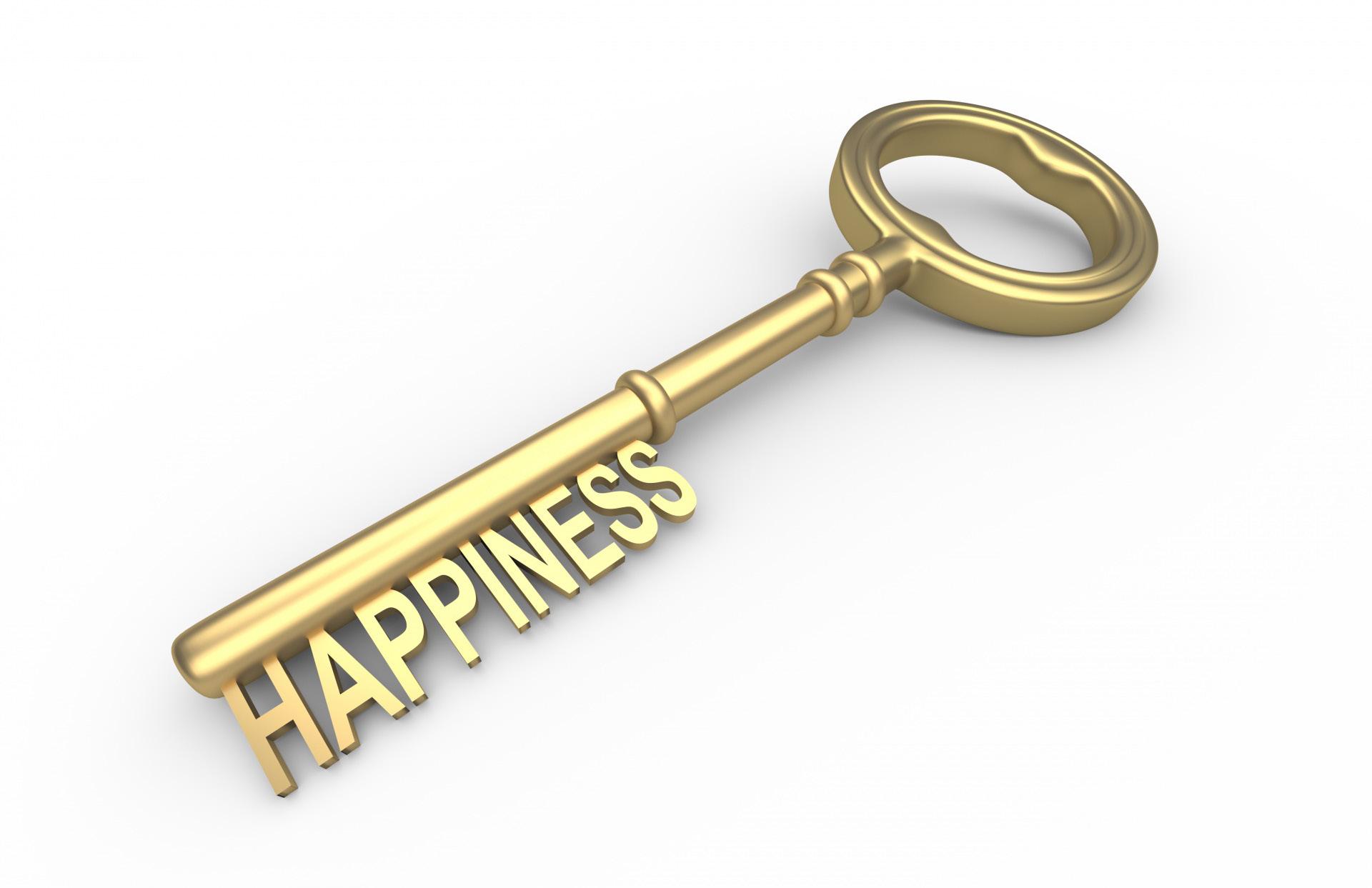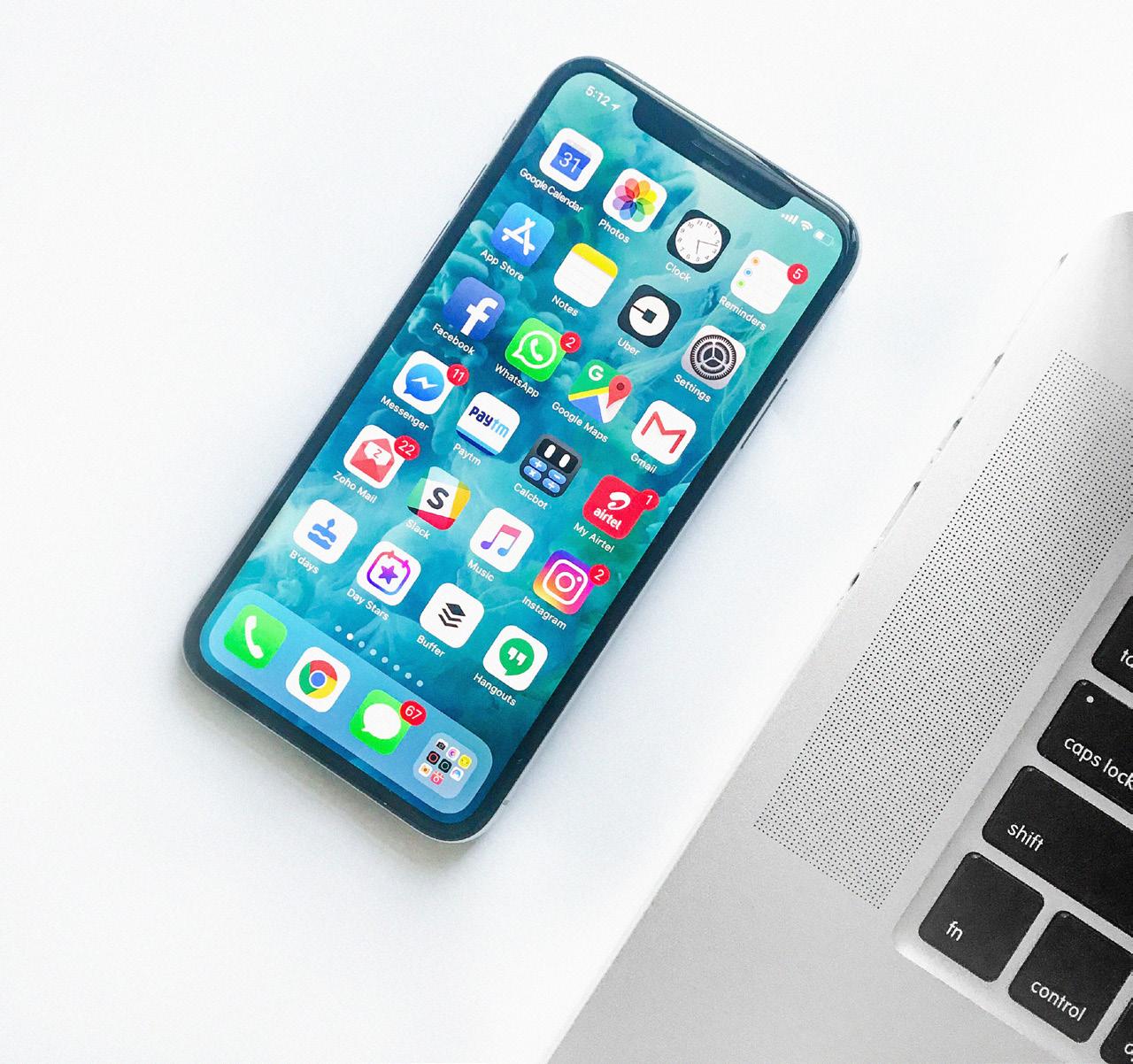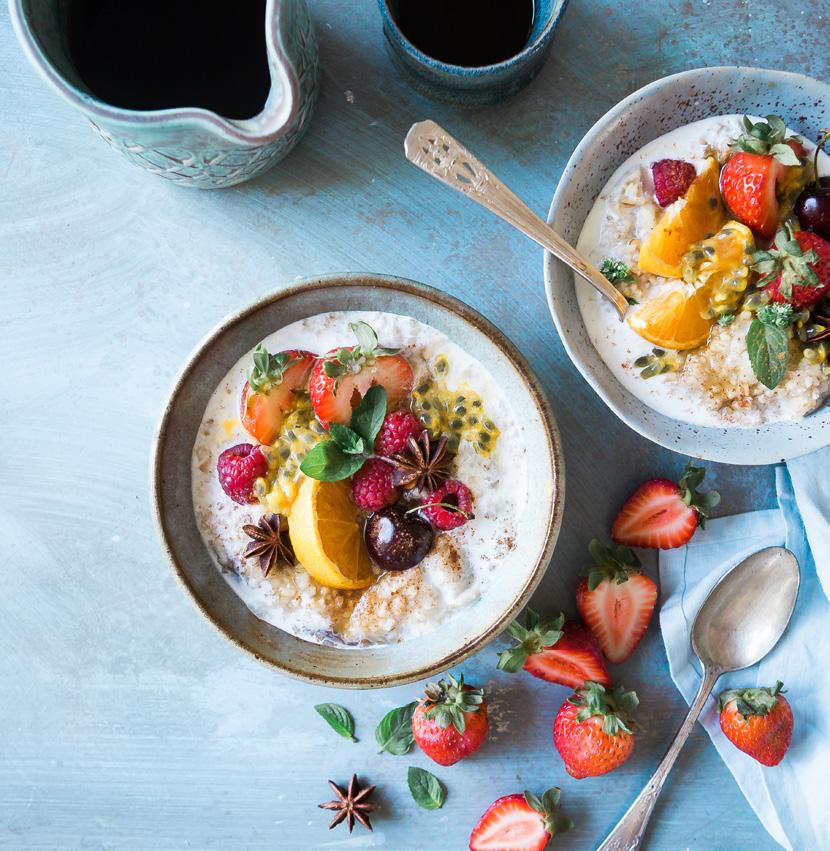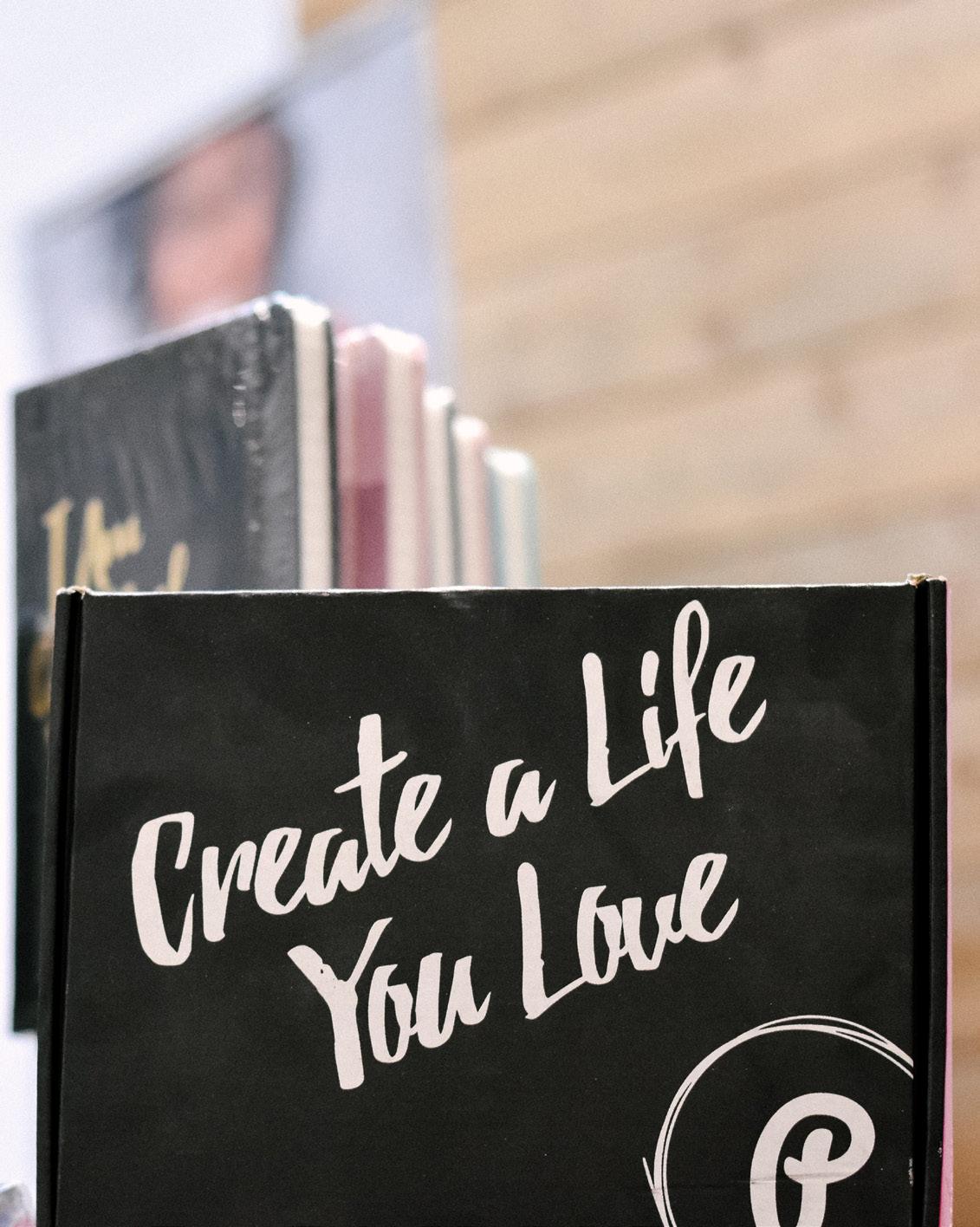
7 minute read
How to Protect Your Mental Health
How to protect your mental health during lockdown. THE HAPPY LIST
BY PENELOPE BIELCKUS
Being stuck indoors is never ideal, especially when the weather is starter to get warmer (in theory, anyway... does anyone else feel like April has been colder and wetter than January and February?), but during these unprecedented times the majority of us are staying home and protecting ourselves and others from the C word.
And no, I don’t mean Christmas (give me a few months and I will be staying home and hiding from that too, though).
Having to stay home and stay inside aside from brief daily exercise, which is allowed for the majority of people, can give even the most introverted soul a spot of cabin fever. As a professional traveller (I think this should be my new job title), it’s been pretty strange to not be able to travel, even just to Spain for the
weekends. This is the longest I haven’t left one place in... years? It’s a weird, weird world we are currently living in.
Protecting your health and the health of others is the main reason for social distancing and staying at home, but being stuck indoors can really impact your mental health. The same goes for being without company (for some people who live alone), not knowing when we will be back to ‘normal’, being concerned for friends and family (or for yourself) and so on. Even something as simple as not being able to go and hug a friend can impact our mental health negatively.
Not all is lost, however! There are a multitude of ways that we can protect, help and manage our mental health during these uncertain times. The main ways include:
life
Connecting with others
Looking after your health and wellbeing
Managing your media and information intake
Having a routine
Doing things you enjoy
Keeping your mind active
Getting some sunlight
There are so many ways that we can try to focus on things that aren’t this global pandemic. However, there is nothing wrong with being worried. This is your first step. If you’re feeling overwhelmed, anxious or concerned, then this is fine. There is nothing wrong with that. It’s okay to not be feeling perfectly okay.
Haven’t learned a new language, become a master baker or become the perfect homeschooling parent like everyone seems to be on social media? That’s okay (and also don’t trust everything you see on social media). As long as you’re staying safe and staying home if you’re able to, then that’s enough. Don’t let any social media bragging, even if Karen has posted her 10th perfect kitchen concoction this week and it’s only Wednesday. #ThatQuarantineLife

CONNECT WITH OTHERS
Staying in contact with friends, family and even co-workers (miss your coffee breaks at work? You aren’t alone!) is even more important now that our in-person social connection has been significantly reduced.
Even back in 1981, sociologist and psychiatrist R. Jay Turner published a journal article on the association between social support and our psychological wellbeing - essentially, the more we feel that family and friends are there for us, the less likely we are to feel depressed and/or anxious. Additionally, Turner stated that this is particularly important in stressful situations (and I’m sure he would have considered this one of those). regular catch up on the phone with a friend, your parents, your children, etc, can help our general psychological wellbeing. We have so much technology at our disposal so let’s make the most of it! Applications like FaceTime, WhatsApp video calls, Facebook Messenger, Zoom, Skype, and Houseparty are making it easier and easier to stay in contact with people, wherever in the world they are.

TAKE CARE OF YOUR WELLBEING
Your physical health and wellbeing has a massive effect on your psychological wellbeing. If we are dehydrated, eating only junk
food, not exercising at all and not sleeping well, that we are definitely going to be feeling suboptimal mentally.
Aim to get 7-9 hours of good sleep (a dark, cool, quiet bedroom is best and make sure you aren’t working from bed!), try to eat healthily (it’s okay - you can still enjoy the less healthy items in moderation), stay hydrated and also make sure to stay active.
If you can (and regulations permit it), go for a walk each day. Even if it’s just a short walk near your home, this is going to act like a great mood booster. According to a 2016 study by psychologists at Iowa State University, walking for just 12 minutes (even without sunshine, nature, or social contact) boosts your mood and your attentiveness. They even found that just walking on a treadmill can boost your mood, so even if you can’t leave the house then you can still get some of that mood boosting goodness.
MANAGE YOUR MEDIA INTAKE
Managing your media intake is even more important now that every news outlet is publishing new statistics daily, articles about countries running out of body bags or space in morgues and so on.
This includes limiting your time scrolling social media as well - research published in the Journal of Social and Clinical Psychology in 2018 found that limiting social media use to only 10 minutes per app each day (Facebook, Snapchat and Instagram) resulted in significant reductions in loneliness, depression and anxiety.

Additionally, 24-hour news updates can increase anxiety and make us feel overwhelmed (known as ‘news overload’). Aim to check the news only at certain times or limit yourself to a certain amount of checks each day. It’s also important to only check reputable sources (there are some ridiculous conspiracy theories out there, as well as a tonne of bad reporting) - sources like HM Government of Gibraltar, the BBC, ECDC (European Centre for Disease Prevention and Control) and the WHO are reputable and trustworthy, so take that person on Facebook who says ‘my uncle is a doctor and says XYZ’ with a pinch of salt. There is a lot of fake news circulating so, if it isn’t backed up with legitimate named sources on reputable news sites, be careful with what you read.
HAVE A ROUTINE
Many people (myself included) have found themselves impacted career-wise due to the outbreak. Whether you have been furloughed, are now working from home, have taken time off because you need to care for a dependent or can’t leave home due to health reasons, you still need to try to maintain some kind of daily routine.
As someone self-employed who usually works from home (actually, usually it’s from Costa, in all honesty), a routine can make or break your productivity. Even if you aren’t working from home, multiple studies have shown that establishing routines with healthy habits can have major psychological benefits.
free tutorials and Skillshare (online classes and workshops) is offering two months free of charge. There are also lots of great language learning apps and websites if you fancy working on your polyglotism during lockdown, such as Duolingo, Busuu, Babbel, Mondly, Rosetta Stone and Drops. [For something a little closer to home, local language school Little English is offering virtual English, Spanish, and French lessons for as little as £10/hour!]
Having a routine means getting up at the same (or close enough) time each day, structuring your day, setting goals for your day (work and otherwise), having set mealtimes, and having a bedtime with a ‘wind down’ routine. It doesn’t necessarily have to be ‘have dinner at 7:15pm every day and be in bed at 11:05pm on the dot’, but having a structure to your day will benefit your mental health significantly.
DO THINGS YOU ENJOY

DON’T FOCUS ON THE NEGATIVE
All in all, aim to focus on the positives in life. Do you get more time to spend with your kids? More free time to try new recipes? Has lockdown resulted in the biggest spring clean ever? Whatever your positives are, aim to focus on these over morbid statistics, heartbreaking news, and constant overwhelming news updates.
especially important when it seems that the news is just doom and gloom with no light at the end of the tunnel.
Do you enjoy baking? Learning to cook a new dish? Playing video games? Watching rom-coms? Doing a crossword or sudoku? Doing things you enjoy, as well as keeping your mind active, is a great way to improve your mood.
If you have a lot more time than normal (e.g. you’ve been furloughed or otherwise can’t work), use your time to do activities you enjoy. You can also take the opportunity to try something new - YouTube is a gold mine of
‘Positive news sources’, such as The Happy Broadcast (one of my favourite Instagram accounts), are a great way of adding some positivity to your day.
Staying informed is important. Doing your best to stay healthy - both mentally and physically - is just as important.
We are all in this together and we will overcome this. This is not forever and we will eventually be back at the beach and having picnics with family and friends.











